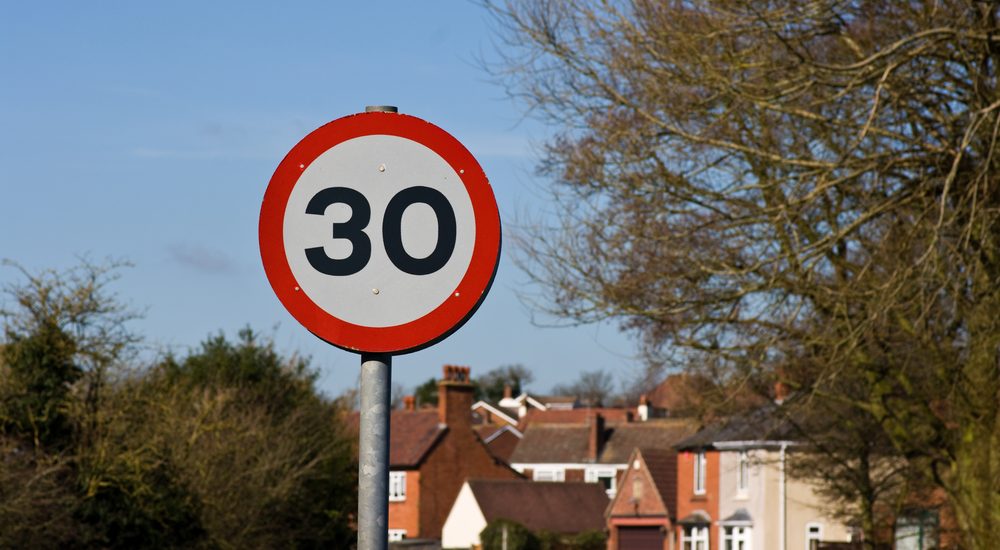A life changing injury from an accident at work can be incredibly distressing and is among the most challenging situations a person can encounter. When the injury occurs in the workplace, the employer’s involvement adds an additional layer of complexity.
Many workers worry about how their employer will respond to the situation. In these circumstances, getting the right help and advice is key to the claimant securing the long-term compensation they need.
In this article, Personal Injury partner Warren Maxwell answers some common questions on the process of making a personal injury claim against an employer after an accident at work.
Can I claim compensation for an accident at work?
The short answer is yes, if you’ve been injured at work and your employer or someone else working for your employer at the time of the accident has done something wrong that led to your accident, you may be able to make a work accident compensation claim.
We spend many hours at work every year and accidents will inevitably happen. In 2022, the Health & Safety Executive had 60,645 serious injuries at work reported to them.
The law recognises that employers have control over those working for them and their workplace, whether that be a factory, office or outdoors. As such, employers owe a duty of care to their employees as well as others affected by their activities such as contractors and workplace visitors.
Who is liable for an injury at work? What are my rights?
Your employer is responsible for providing suitable training, safe systems of work, safe equipment and a safe place to work. If your employer has failed to adequately provide these, and you have sustained an injury because of their failure, your employer will likely be held at fault or ‘liable’ for your injury.
Sometimes accidents are caused by another employee or a contractor. In these circumstances, a claim can still be made because employers are generally liable for the actions of their employees and others they are responsible for. Employees also have a legal duty to take reasonable care of themselves and others while at work.
As long as you can show fault on the part of your employer, even if you are partly at fault, you can recover compensation for your injuries.
All employers are legally required to hold at least £5m worth of employer’s liability insurance. Typically, your employer’s insurer meets your claim when something goes wrong.
What are the most common serious injuries in the workplace?
Falls from height remain the most frequent cause of serious injury in the workplace. The law places duties on employers to assess all risks to employees at work and specifically risks caused by working at height. Employers must always ask themselves whether work can be done safely from the ground before considering safety netting and fall restraints.
There are many types of workplace injuries that can lead to a claim, including:
- moving vehicles and objects
- contact with moving machinery
- simple slips and trips (serious injuries of various kinds can and do result from unsafe work areas)
- dangerous working practices
- poor or non-existent workplace risk assessments
- workers not provided with personal protective equipment (PPE)
- spillage hazards that could have been prevented
- falls from height
- poorly maintained equipment
How does the personal injury claim process work?
If you have sustained a serious injury in the workplace, you should begin by instructing a specialist solicitor. They can assist with the process of establishing who was at fault, and managing your claim from there.
Your claim starts by sending a ‘letter of claim’ to your employer, their insurers and any other party considered to be at fault. This sets out the reasons why you consider your employer to be to blame for your accident, and gives details of your injuries.
Your employer, or more likely their insurers, investigate the claim and respond, usually within three months. They may admit full or part fault for your accident or explain why they do not consider they are at fault. If your employer denies it is at fault, it may be necessary to go to trial to resolve the question of whose fault the accident was.
Where the insurer admits full or partial blame for the accident, your solicitor should ensure that privately funded rehabilitation and support is put in place, paid for by your employer’s insurer as part of the claim. Most insurers now recognise that paying for early rehabilitation and support is sensible and willingly work with specialist solicitors towards ensuring accident victims get the support they need.
The rehabilitation and support package should aim to maximise the injured person’s recovery and help them return to as much independence as their injuries permit.
The vast majority of personal injury claims arising from workplace accidents are settled without the need for trial at ‘joint settlement meetings’ where the parties aim to negotiate settlement amicably.
How much compensation could I get for being injured at work?
Compensation consists of;
- ‘General damages’ – a sum in the compensation award that reflects the pain and suffering you have experienced. This figure is often based on awards made in previously decided cases involving similar injuries.
- ‘Past special damages’ – financial losses from between the date of the accident and the date of any settlement or final trial award. In serious injury claims, these often include:
- lost earnings,
- the costs associated with support,
- private rehabilitation and equipment,
- alternative accommodation and adaptation costs,
- specialist transport, and
- other costs associated with coping with and recovering from your injuries.
- ‘Future special damages’ – costs and expenses that are likely to happen in the future, potentially for life. Again, these can be for a wide range of items as long as they are reasonable in nature, cost and are likely to benefit you. The largest losses in serious injury cases are usually the costs of care, accommodation and rehabilitation but can also include additional costs of transport, equipment and going on holiday, for example.
How long does a work injury claim take?
It is difficult to say at the outset how long a claim will last. Much depends on your employer’s insurer’s approach. If a trial is needed to establish whose fault the accident was, this can add to the length of the claim.
It is also important assess your long-term medical and other needs, on which experts will need to provide opinions. Medical experts generally prefer to wait until two years has passed following the accident before they feel able to form safe views on what these will be. Therefore, serious injury claims often take three years or so to reach a conclusion.
Funds to replace lost earnings and meet medical, therapy and other needs can and should be accessed during the course of the claim. A specialist solicitor will look to secure funds at the outset and throughout to ensure your needs are met until your case is ready to be settled.
What should you look for in a personal injury lawyer?
Following a serious injury it is essential to ensure that the solicitor you choose has the experience and skill to handle your case. Not all personal injury solicitors handle cases involving life changing injuries so it is well worth carrying out your own research.
A good place to start is the Association of Personal Injury Lawyers (APIL), where it is possible to check whether law firms and their lawyers hold accreditations relevant to your injury, such as the APIL Spinal Cord Injury or Brain Injury Accreditation. Lawyers with those accreditations have been vetted by APIL and have demonstrated experience and expertise in handling these cases. Many of our lawyers at Stewarts hold these accreditations and others.
The leading independent guides to the legal profession, The Legal 500 and Chambers & Partners can also help you find suitable, specialist lawyers.
It is essential that you meet your lawyer early on to ensure you are comfortable with them, their expertise and the advice they are providing. Having the right lawyer from the outset can significantly increase your prospects of getting early rehabilitation, interim funds and ensuring the best outcome in terms of compensation and your health.
If you have instructed a solicitor and feel that you are not getting the service you expect, it is a straightforward process to transfer your case to another firm.
Can you be sacked for making a claim for personal injury against your employer?
Although all cases should be judged on their own facts, the simple answer is no. If your decision to bring a claim was the reason for your dismissal, your employer would most likely be acting unlawfully. This is the case even if you were partly at fault for the accident.
Where possible, helping you return to work is part of the rehabilitation process and most employers willingly engage with the work of private rehabilitation teams to achieve that goal.
How long after an accident at work can you make a injury claim?
Claims for personal injury must be issued in court within three years of the date of the accident. If you fail to do so, your claim will likely be dismissed for being out of time.
This rule does not apply if a person has lacked the legal capacity to run their claim since the accident happened, for instance where a person has suffered a serious brain injury.
It is always best however to progress your case promptly. Researching, identifying and instructing the right specialist solicitor can give you the best chance of accessing early rehabilitation, giving you the best chance of making a good recovery from a serious injury.
Contact us
If you’ve been injured at work and want to know your rights, our Personal Injury lawyers are on hand to assist you.
Our legal expertise and willingness to push boundaries has enabled our clients to achieve record-breaking compensation awards. We have recovered more than £1.3bn in damages in the last decade and acted for over 2,500 seriously injured or bereaved clients.
You can find further information regarding our expertise, experience and team on our Personal Injury page.
If you require assistance from our team, please contact us.
Subscribe – In order to receive our news straight to your inbox, subscribe here. Our newsletters are sent no more than once a month.






